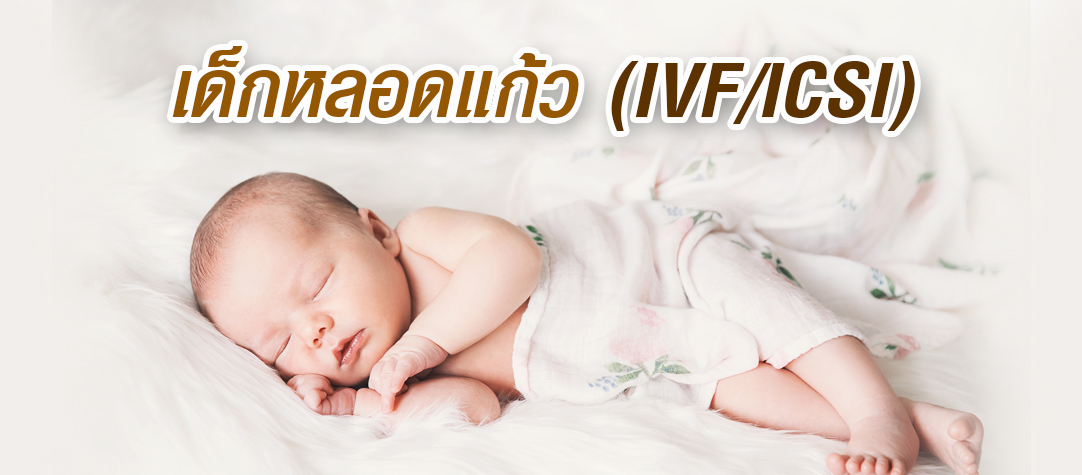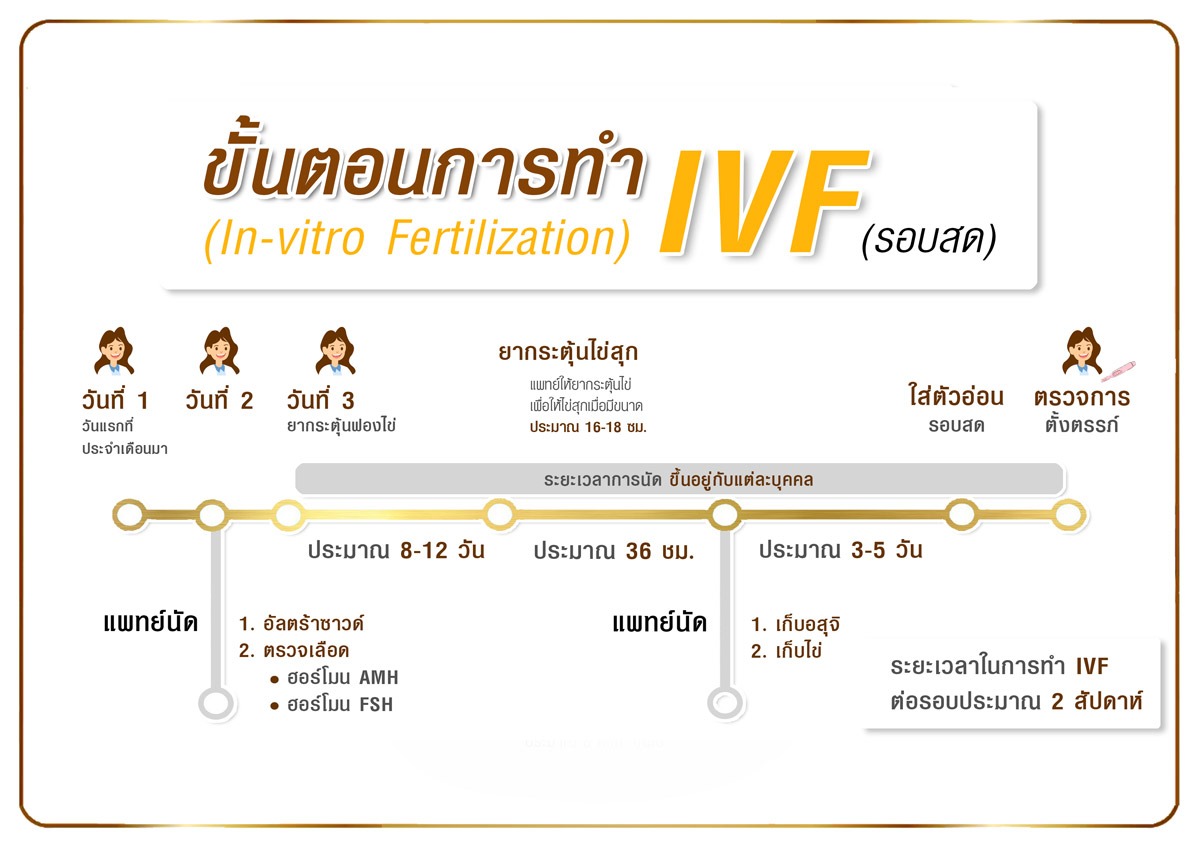
IVF/ICSI
People experiencing infertility may have heard the IVF or in vitro fertilization while many other people still may not understand what IVF is, who is suitable for it, and when you should do it. Akarabut Fertility Center has already collected information for you as follows:
In Vitro Fertilization (IVF) is the selection of a mature egg from the woman and a strong sperm from the man to conduct external fertilization. Then, the fertilized egg becoming the embryo was brought back into the uterine cavity to carry a normal pregnancy.
Who is suitable for IVF?
- For a married couple whose fallopian tubes are blocked or destroyed
- Low, weak, and immotile sperm
- For a married couple trying to get pregnant in a natural way for 3 years
- Those who failed the IUI
#Limitations of IVF
Those who have a weak or malfunctioning uterus will not be able to get pregnant and those with serious health problems would be dangerous if they get pregnant. These are limitations of IVF.
For spouses who may have tried other methods and have not been successful, IVF is an alternative. You can see a doctor for consultation before deciding to receive treatment.

Treatment Process
- To induce the egg, the doctor will conduct an anti-müllerian hormone (AMH) and ultrasound to check readiness before the induction on Day 2 - 3 during the period. Abdominal injections must be performed every day to induce the egg for about 10-12 days.
- Symptoms are observed to assess the body's response.
- The doctor determines the size of the egg. A hormone injection is performed for ovulation induction 35-37 hours before egg retrieval.
- The egg retrieval process is performed in the operating room.
- Sperm collection on the day of egg retrieval must be performed. In case of the man's inconvenience, frozen sperm can be used.
- For fertilization, the strong sperm is selected to fertilize the egg in the laboratory.
- The embryo report will be given with an explanation from the caretaker the next day.
- Embryo transfer is divided into fresh embryo transfer and frozen embryo transfer. You can read more details.
- For embryo freezing, the remaining embryos can be frozen for use in IVF in the future.
- A pregnancy test is performed approximately 10 days after embryo transfer and a blood test can also check pregnancy.

